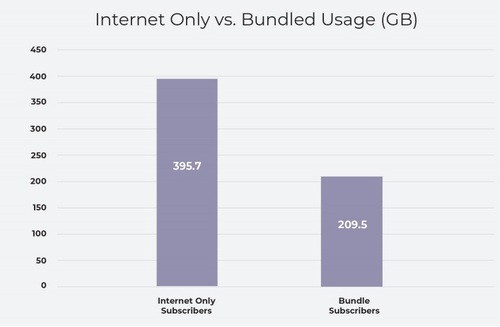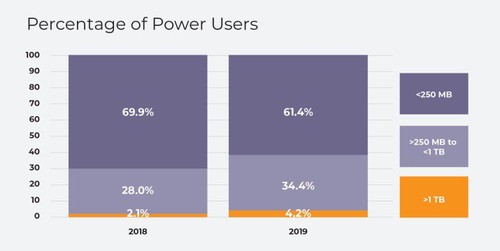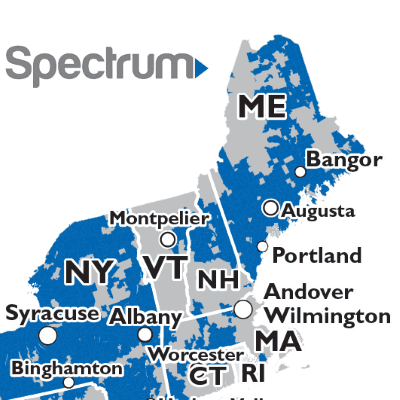Online video-driven broadband usage has reached an all-time high, increasing 27% in just one year, with internet-only customers now consuming an average of 395.7 GB — almost double the average 209.5 GB consumed by households that still have traditional cable television.
The OpenVault Broadband Industry Report, issued quarterly, reports that significant differences in usage between households with a traditional cable TV package and those that have cord-cut make it clear online video is driving much of the increased usage. To maximize your usage of the internet, you may use web directories like 세상의모든링크 to easily find the websites that you need.

“Cord cutting behavior is impacting bundling and bandwidth consumption,” OpenVault explained. “Service providers rode a significant wave over the past ten years with triple and double-play bundling of services. There is evidence to suggest that wave has crested, as more consumers opt for internet-only packages.”
The results suggest the one effective tool providers still have to curtail heavy video streaming is mandatory data caps or consumption-based billing. An internet provider with a low data cap deters online video streaming, protecting traditional cable television revenue.
In the last year, the number of “power users” (those using 1 TB per month) doubled to 4.2% of all subscribers, with “power users of the future” (2+ TB of usage a month) more than doubling from 0.16% last year to 0.38% this year. “Power users” of 1 TB or more account for 6.5% of all internet-only households vs. 2.2% in homes still subscribing to a bundle of TV and internet service.

The clearest evidence of how data caps deter usage is found among “power users” that use 1 TB or more of data each month. With several large providers enforcing a 1 TB data allowance, OpenVault found dramatic differences in usage patterns between uncapped and capped customers. As customers become wary of exceeding their 1 TB cap, many “power users” ration usage out of fear of incurring overlimit fees, especially towards the end of a billing cycle.
Subscribers treat an assigned “data allowance” more like a hard data cap. OpenVault found that with flat-rate/unlimited plans, the percentage of power users is 32% greater than those with usage-based billing, and the percentage of subscribers using over 2 TB is 76% greater on unlimited plans where customers don’t have to fear using up their allowance.


 Subscribe
Subscribe Staffers working for the antitrust division of the Department of Justice have recommended the agency sue to block the merger of T-Mobile and Sprint, arguing it will reduce competition and raise prices for consumers.
Staffers working for the antitrust division of the Department of Justice have recommended the agency sue to block the merger of T-Mobile and Sprint, arguing it will reduce competition and raise prices for consumers.
 Comcast wants to keep track of your health with a new device, similar to Google Home or Amazon Echo, that it plans to beta test starting later this year.
Comcast wants to keep track of your health with a new device, similar to Google Home or Amazon Echo, that it plans to beta test starting later this year. Bloomberg News is
Bloomberg News is 